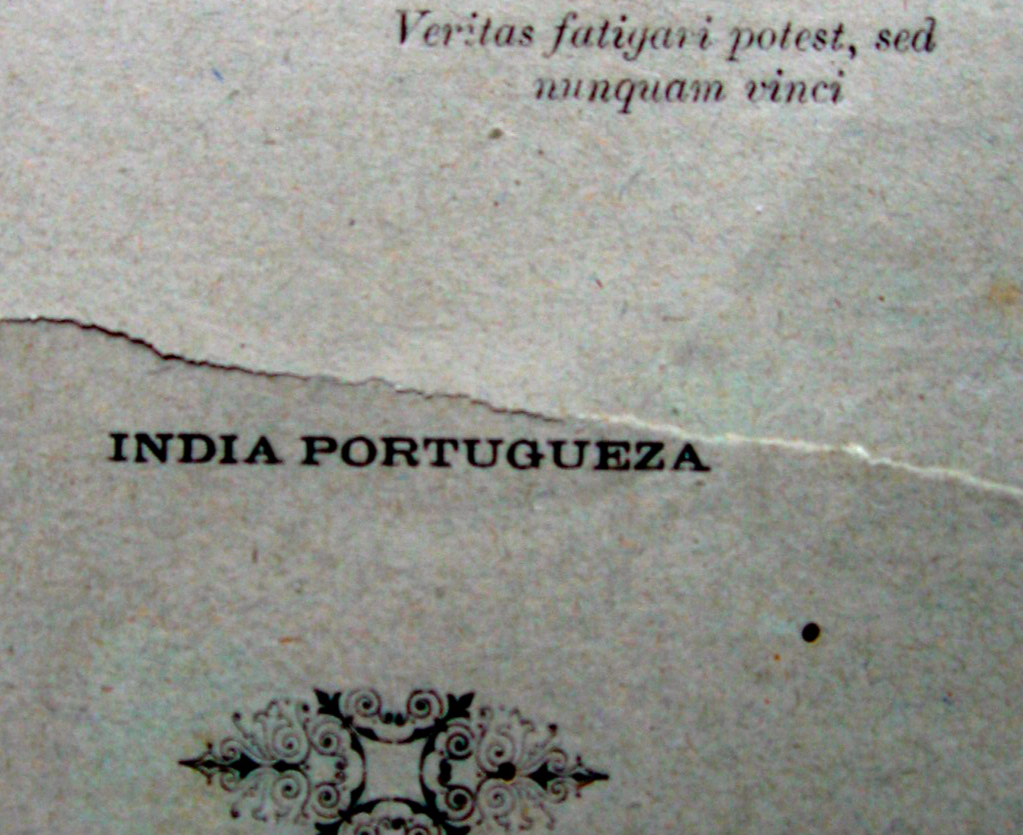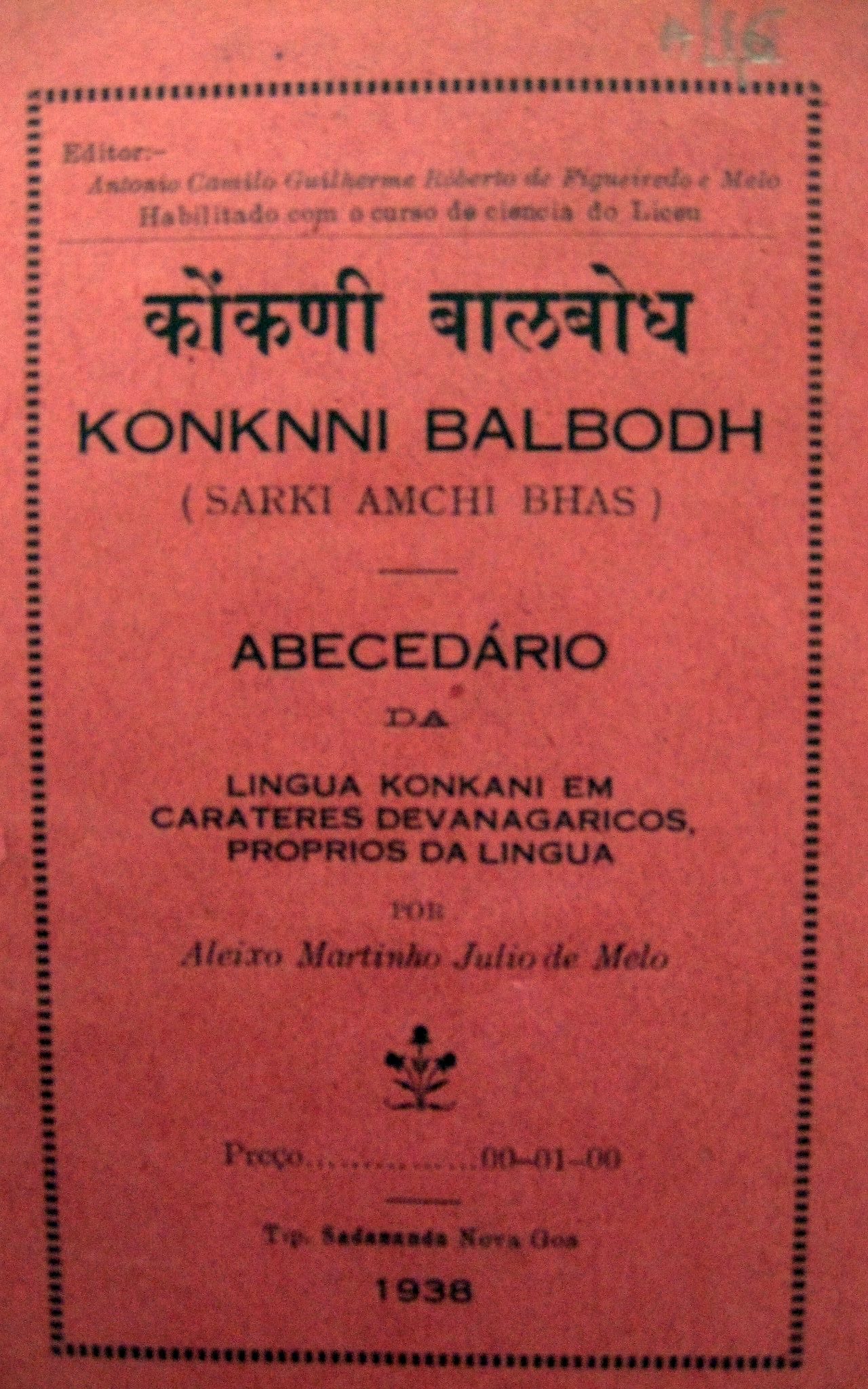Mrs. Lilia Maria de Souza
an interview
Rochelle Pinto and Sandra Ataíde Lobo in conversation with the former librarian, xavier centre for historical research, porvorim, goa
Pinto: Were it not for the knowledge and generosity of Mrs. Lilia Maria de Souza, the former librarian of the Xavier Centre of Historical Research, a research library in Porvorim, Goa, I would have taken far longer to arrive at a perspective on the Portuguese texts that I read with great difficulty during my PhD research. The crucial role of librarians in making knowledge accessible, from the catalogue to their encounter with a reader, never struck me as forcibly as it did during the months I worked both at the Central Library, Panjim and the Xavier Centre for Historical Research, a few kilometres away.
If I had asked for two titles on education policy in the nineteenth century, which I had found in the exemplary card catalogue, Mrs. de Souza would emerge from the stacks, shortly after, gracefully bearing at least five more texts that I had not requested. As I watched in bewilderment and astonishment, she would slowly advance to my desk and place these books on it and leave. Of course, they would all prove to be useful; more often than not, crucial. I was fascinated with some of the political disputes of that century, played out over a series of issues of newspapers and in printed books. I had no idea which book followed the one I was reading in the moment, but Mrs. de Souza did. Without my requesting it, my desk was soon filled with the sequence of books in which I could read entire bitter quarrels between Goan and Portuguese officials and the intelligentsia, whether over a rebellion of soldiers, or a change in land policy.
While I read, Mrs. de Souza was usually in her office, creating more catalogue entries, and classifying books. She never once indicated what her opinion might be about the direction my research was taking, or my ability to master the texts I ordered, and helped graduate students from the university with the same calm and neutral efficiency as she did me.
Clearly, she had extensive social knowledge of the milieu about which I was reading but was also well acquainted with different segments of the library’s vast collection, and, luckily for me, with the history of the period I floundered through until I could make sense of it. From women’s education to liberalism, she seemed to know what sources to bring up from the stacks.
What kind of interests and experience and training had produced such ability? In the following interview, Rochelle Pinto, with Sandra Ataíde Lobo discuss Mrs. Lilia Maria de Souza’s experience as a librarian.
Thank you for agreeing to be interviewed by us.
LMdS: To begin with, I would like to say with the psalmist, “I have a goodly heritage”(Psalm 16). Not because I was born in the milieu of the so-called “Portuguese-speaking” elite (for which I do not care). Rather, it is because my parents were loving and compassionate, and always concerned with the less fortunate. I had a whale of a time growing up along with my brothers. In the primary school, Konkani-speaking girls were my best playmates. I went on to complete the seventh year at the Lyceum (the Portuguese high school system) and two years of the diploma in teaching (the diploma in teaching awarded by the Escola Normal in Goa).
When Liberation dawned, I had started teaching in a village primary school, near Margão. Most kids here were Konkani-speaking children of labourers who tended fields. I loved them. So affectionate, clever and creative! But teaching them was not an easy task. The medium of instruction was supposed to be Portuguese. Textbooks printed in Portugal were so out-of-place! The kids were the product of their green environment. They knew when the mango trees flowered, how the birds built their nests and bulls ploughed the fields! But they failed to understand the meaning of sheep, snow, strawberries – things they had never seen. Later, a window of opportunity and better educational facilities opened for them.
II
How did you arrive at this work?
LMdS: Post-Liberation, a period of transition; we were at a crossroads. My ex-colleagues and friends had switched over to English studies and joined one of the new colleges. All felt that Portuguese studies were irrelevant in the changed situation. I too enrolled in a college in Margão and finished my B.A. ( Bachelor in Arts). I then got married and took a nice break for almost a decade-and-half to take care of my three precious daughters.
Ironically, the Portuguese studies that we felt were of no use, came to my aid when I decided to go back to work. My younger daughter was eight, all three were engrossed with their school and extra-curricular activities. I confided in a friend that the drudgery of housework was getting to me. We women all know about it. She suggested that I join the newly-founded Xavier Centre of Historical Research (henceforth, XCHR). She had heard that they had an opening for a person conversant with Portuguese!!!
My interview with the Director of XCHR was arranged. He appointed me as an assistant in their Library. My only qualifications were my courses in Portuguese. I had no idea of library science but my love for reading and books was obvious (in fact, my brothers called me a “bookworm” in my younger days).
III
What was your first experience working in a library?
LMdS: XCHR is a Jesuit institution. When I joined in May 1981, it was temporarily housed in a bungalow (Loyola Hall) at Miramar, Panjim. The library collection included old, never-used books which occupied a hall in the ground-floor of the building. On the first floor, there were two classrooms where Portuguese courses were held during the holidays. Dictionaries and grammar books were displayed so that students could consult them. Surrounded by books, I not-so-happily went through routine library work (recording, stamping, sticking) – but all along I had a hunch it would end up as a fascinating learning experience!!!
In which libraries and archives have you worked, and what kind of work did you undertake in each?
LMdS: In 1983, XCHR shifted into its new, spacious premises, in Porvorim. The solemn inaugural function was held at the beginning of the Third International Seminar of Indo-Portuguese History. By June 1983, the Institution had finished moving. I too was moving. Equipped with a diploma course in Library Science (not so ignorant now), I had extra and interesting duties. I could issue books to the readers, and thus have a chance to browse through them. My learning process had begun. I was lucky that the XCHR just had a reference library. The boring tasks of lending/ returning books were not part of my work. Moreover, ordering books, budgeting, etc., was all done by the Jesuit manager.
So I was left with the work of cataloguing, classifying and issuing books which I loved most. As an ardent follower of Dr. Ranganathan, the doyen of Library Science, his laws were my code. He wanted the right book to be given to the reader. So I am not surprised with all our dear researchers thanking me. It was my pleasure to help them. I gave, but I received much more. My knowledge kept on increasing, as I interacted with them. Dr. Teotónio de Souza was at the helm of the XCHR when I joined work. He enjoyed the unflinching support of Fr. Romuald de Souza, the Jesuit Provincial at the time.
The institution was Dr. Teo’s brainchild and he nurtured it with the knowledge acquired through his PhD studies. He was aware of thousands of books, booklets, and pamphlets lying within the walls of old Goan homes and of families ready to part with them. He knew all the ways that the history of Goa and of the Portuguese expansion overseas had to be re-written. A lot of literature on the Portuguese colonial past came to the Centre through the good offices of the Gulbenkian Foundation. So in 1983, XCHR was to start with a bang!
I should say, re-started with a bang. Thenceforth, an academically fruitful era commenced. Seminars and conferences took place. Researchers from Goa and the Indian subcontinent as well as international visitors availed of the XCHR’s services, and some of them had challenging topics. Simultaneously I got an added qualification, a degree in library science and proceeded in my quest for knowledge.
What were some of the challenges you faced, and what aspects of the library were your responsibility?
LMdS: I was exposed to new learning experiences. Hitherto, I had poor knowledge of Goan history. As taught in the Portuguese Lyceum, history as a subject implied the history of the world with lot of emphasis on Portuguese history. In our English medium college, we learnt world history as well as the history of India – Goa was nowhere. Here was at last a chance to know about my land.
I got deeply interested in all literature regarding Goa: colonial period, also pre- and post. The various Goas fascinated me. Coastal Goa (Velhas Conquistas) differed from Goa of the hinterland (Novas Conquistas) with Konkani and Portuguese-speaking people having their unique identities, etc. I loved the colourful many-faceted society and culture of my GOA. Expansion history or maritime history fascinated me too. It sounded like a fairy tale. But a careful insight into it led me to see the deeper plot.
I think I can never retire. The inactivity during the pandemic drives me mad. After XCHR, in spite of many grandkids, I was itching to go out and consult books and documents. I used to alternate between the new Central Library and the archives at the Bishop’s House. Would have like to bring some order into these archives but frankly, I could not achieve much. The lack of space is a hurdle. The Archives are an additional presence and encroachment into the space of the Chancellery and Communications Office. I offered to organize them and the Bishop and the Chancellor were kind enough to accept. Though they do not play a very important role right now, they could help young priests who want to know more about their parishes trace their history.



